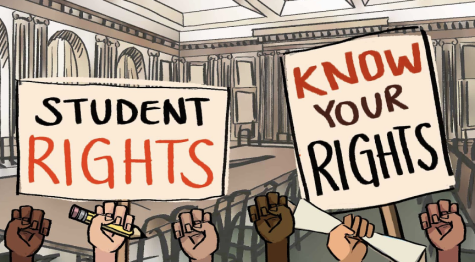Student Journalists’ Rights in Classrooms
It is absolutely critical to defend students’ rights in yearbooks and journalism. This is especially true for Canyon’s publications class, since it is primarily a student controlled class. Often times, writing can be misinterpreted, especially by the story’s subject- which could lead to them wanting to censor the article. Luckily, students have rights that can protect them. Canyon publications class should be able to safeguard the rights and permissions of its pupils. For instance, it is crucial that we remember thedistrict’s publishing laws, such as code 48907, which states that an employee cannot be fired, suspended, reassigned, or transferred if they were defending a student’s rights.
states that an employee cannot be fired, suspended, reassigned, or transferred if they were defending a student’s rights.
If a Canyon student writes an article about another student or teacher, and the main subject of the article doesn’t like it, demands the class to remove it, and threatens to take action, it is important for the students to remember that they have rights in the classroom. Safe and effective classrooms require teachers to be aware of the boundaries and norms that apply to their students.
Students can effectively defend themselves and others, if they are aware of the rights they have in the classroom. For example, the First Amendment, which provides protection to free speech and press freedoms, was effective when in 1988 a Supreme Court case Hazelwood School District v. Kuhlmeier set the standard that educators and school officials must fulfill to legally limit student speech in accordance with the First Amendment.
Knowing what topics are appropriate for them to report on would be simpler for Canyon publishing students, compared to having to go through the effort to defend their article against harsh criticism.
By not being able to defend our right to press, freedom, and expression, students who participate in yearbook or journalism may become uninspired, and decide to leave. This is why it’s crucial that students all over America are aware of their rights, and can stand up for themselves when needed.
When a pupil gains the courage to speak their minds or share their views with the world, the class can defendand support them. Students who learn their rights and limits will be able to respect the subjects of their articles while maintaining objectivity.









